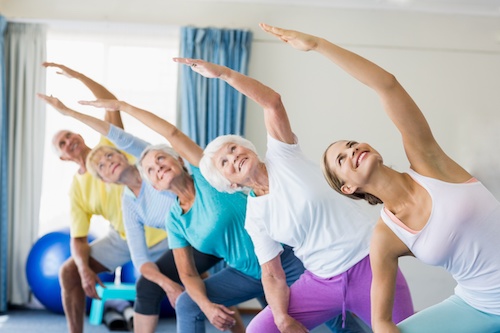18 February 2018 13:1
Written by Teleopieka
Mobilising seniors in the local community
The social mobilisation of seniors, as well as that of any other social group, begins in the local environment. The success of each and every project depends on many factors. One of them is the integration of the community. The next step is to awaken the willingness to act. An important role in these activities is played by non-governmental organisations as well as volunteers who gathered around them, including churches, religious associations, universities of the third age, etc.
According to demographic data, our society is aging at an accelerating pace. Contemporary seniors want to be independent for as long as possible and enjoy the fruits of life. Numerous studies indicate that prolonging professional activity and achieving one’s passions enhances a sense of accomplishment and creates a lot of optimism. As a result, people who pursue these types of activities complain less about their disease and ailments.
The most popular reason for the mobilisation of seniors are universities of the third age. There are over 100 of them operating in our country. They gather over 25,000 followers.
Another popular form of integrating older people are Senior Clubs. They conduct artistic, touristic and integrative activities.
Social Time Banks are innovative initiatives which motivate people to act and improve their sense and meaning of life. The idea of these banks is based on the exchange of services. Older people have a wealth of knowledge as well as rich life experiences. Their advice may benefit the younger generation. On the other hand we observe seniors requesting to be educated in the use of new technologies. The elderly are also interested in learning foreign languages, taking part in art activities, sports and trips as well as meeting new people.
Simultaneously with mobilising activities, it is important to be aware of the health-oriented and support initiatives. To maintain health and well-being, group activities such as Nordic walking and aerobics, including other activities, are also organised. An excellent method of social mobilisation is the idea of “seniors helping seniors.” The methods of support may be different: help with shopping, doctor visit or actively spending time together. People who are sixty years of age can be an excellent support system for people who are older by 10 or 20 years.
An effective complement to any of these activities are the various methods of support offered in the form of Telecare. Remote forms of assistance aim at increasing the sense of security as well as effective response to critical situations. It is possible to use expensive forms based on commercial caregivers. However, neighbourhood support, supplemented with automated Telecare Systems, are equally as effective.
Initiatives of this type are particularly supportive and appreciate. Experience from Western countries has shown that they bring tangible benefits to both sides. Most activities that mobilise and support seniors do not require a large financial outlay. Initiating activities for the elderly, keeping time banks, or supporting the Telecare System over and above having a willingness and positive energy, does not require the creation of high-budget projects.

